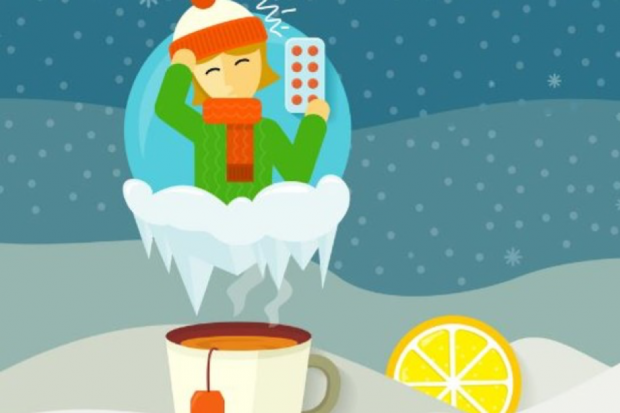
CS Local Scotland wellbeing network have submitted their final issue of 'Get ready for winter'.
Dark evenings, inclement weather and the aftermath of festive overindulgence can lead to us feeling unenergetic and run down, leaving us more vulnerable to common winter conditions.
Viral infections thrive in winter. For many of us this may be no worse than a mild cold or sore throat, but for those in vulnerable groups flu or norovirus could have a devastating impact.
Viruses can spread to new carriers from surfaces that come under frequent contact such as door handles, light switches and towels. The risk of infection can be greatly reduced simply by remembering to regularly wash our hands and disinfect surfaces.
Cold sores are also viral and can recur at times where we are run down or under stress. While there is no permanent cure for them, taking time to look after our mental health can reduce instances of the physical symptoms.
Our circulatory system behaves differently during cold weather and the threat of heart attacks and strokes rises in winter as the blood vessels tighten to increase our blood pressure and maintain body temperature. This risk can be heightened by a seasonal decline in physical activity as we spend more time inactive and indoors.
Despite its unfamiliar name, Raynaud’s phenomenon is a common circulatory condition which causes the small blood vessels of the fingers and toes to spasm, reducing their blood flow. Sufferers can experience colour change and pain in their fingers and toes in cold weather.
Regular exercise can boost heart health and circulation. In fact, the benefits of physical activity can ease other ailments. Sufferers of arthritis experience stiff and painful joints during winter but activities like swimming, which can be done in comfortable indoor conditions, have low impact on joints and have a positive effect on mood and sense of wellbeing.
Look after yourself and your family this winter with the following tips:
- check if you or members of your family in vulnerable groups by visiting NHS.UK - conditions - those at high risk should consult their GP to discuss a flu vaccination
- always check the weather forecast and dress appropriately
- manage your stress levels with these stress busting techniques
- stay hydrated if you are suffering from a winter virus - this will help you recover more quickly
- consider becoming involved in a regular physical activity you enjoy, perhaps swimming for fitness
- apply moisturising products after a bath or shower is the best way to “lock in” the skin’s natural moisture and maintain skin health
Read more about staying healthy this winter at www.nhs.uk.
If you would like to become a member or know more about Scotland's wellbeing network please email Karen Ludlow.

3 comments
Comment by Louisa Radice posted on
Given the value of regular exercise, it's a shame not all Civil Service offices have gyms.
Comment by Heather posted on
Louisa, thank you for your comment. Exercise comes in many different guises and not everyone would enjoy being indoors at a gym however My Lifestyle offers discounted rates to local gyms and some local authorities also provide subsidised rates.
Comment by Panos posted on
Exercise can have various forms. Dancing is a very enjoyable physical activity that involves social interaction, boost our mood and is of great fun. Just recently my service support us to organize a salsa taster with a great success.